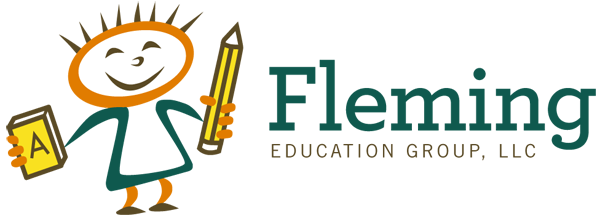Debunking ‘Private: Why a private, independent school?'
Those of us with children in private schools have chosen our school for many important reasons, one of which may be that it is an independent, or “private,” school. Yet when family, friends and neighbors ask, “Why do you send your student to a private school?” many of us find it difficult to articulate the answer.
Our difficulty may stem, in part, from the fact that we chose our private school for many intangible reasons that are hard to put into words. And sometimes we might be concerned that our answer will trigger a debate about the merits of public versus private school.
At Fleming Education Group, our client families pose this question more often than not. I want to help make answering “why a private school?” in general, and “why Breck, SPA, Blake, Minnehaha Academy, International School or Providence Academy?” in particular easier for anyone exploring school-placement options.
Especially here in the Twin Cities where there are so many excellent, non-private school options (Eden Prairie, Edina, Hopkins, Minnetonka, Orono, Wayzata and many more), it’s important to focus on understanding the value of independence, as this is truly one of the things that can make private-independent schools worth the investment.
By definition, an independent school is independent in two critical ways:
- Independent in Governance – Independent schools are organized as not-for-profit and non-discriminatory corporations governed by a self-perpetuating board of directors as opposed to being "owned" and run by the government (public schools), by a diocese (parochial schools) or by for-profit entities (proprietary schools).
- Independent in Finance – Independent schools charge tuition and raise money to self-operate, as opposed to being supported primarily by public monies or religious subsidies.
The independence of independent schools offers four essential freedoms that make them strong:
- The freedom to define their own mission (why they exist, whom they serve).
- The freedom to regulate admissions (admitting only those students appropriate to the mission).
- The freedom to define teacher credentials (hiring liberal arts graduates who have majored in a discipline other than education or who have worked in the field before coming to the classroom and have a deep understanding about the subject they now teach).
- The freedom to teach what the teachers decide is important (not tied to state curricular, textbooks and testing mandates).
The results of these freedoms show up at several Twin Cities “privates” in several critical ways:
Small Classes, Individual Attention: Impressive adult-to-student ratios are one of the reasons privates are able to provide personalized support to virtually every child, in every class, every year.
Academic Rigor & College Prep: Not being tied to state mandates, a private-independent school has the freedom to design an academically rigorous curriculum that best prepares its students for college and the world. Many schools offer robust AP courses and tout impressive college matriculation illustrating the strength of their academic programs and success of their students. From Harvard, Princeton and Stanford to universities of Minnesota, Wisconsin, Illinois to John Hopkins, NYU and Colby College, private-independent students have the support and leadership to research, apply to and matriculate to schools of best fit.
Outstanding Faculty: Often overlooked, many schools have the freedom to choose the faculty that will best serve their students. Many schools retain and support faculty members who have masters, PhDs or other advanced degrees. Their deep curriculum (content and delivery) expertise allows students to learn at a much deeper level.
Diversity & Inclusion: Multiple perspectives and experiences are core to educational excellence and strengthen a school community. Many schools are committed to reflecting the multicultural and multi-racial community of the Twin Cities, and some, but certainly not all, offer more diversity than many of our neighboring suburban schools. When choosing a best-fit learning environment, it’s vitally important that parents examine how sincerely (systemically) a school honors, embraces and “lives” diversity in its many forms. Consider: Does a school’s faculty and administrative leadership embody and reflect the cultural richness of the Twin Cities? Will your child see her or himself reflected in the adults they interact with daily in the school? How does a school address and support racial identity development for all of its students? Is privilege a hot-button topic? Why or why not?
Athletics: Given that student populations are relatively smaller at some private schools when compared to public options, chances are your student will have more of a chance to participate in a quality athletic and extracurricular sport experience.
Arts: Many private schools in the Twin Cities believe firmly in the intrinsic value of the arts and their role in helping students succeed in life. These schools offer a wealth of arts classes designed to cultivate age-appropriate talents as well as an appreciation of the artistic process and the role of arts in society.
Global Citizenship and Community Engagement: When considering a private-independent school, take time to explore a particular school’s commitment to fostering world citizens and preparing students for a global society. How robust and relevant are off-campus study opportunities, language options and other programs? Does the school host international students? Does the school intentionally, proactively engage across cultural differences in the Twin Cities, and beyond, in an attempt to cultivate meaningful learning partnerships? Do those partnerships, in turn, result in deeper engagement and comfort with people who are different?
So the next time you’re asked “why a private or independent school?” keep in mind all of the benefits that a private-independent school – and your student – accrue from this valuable independence.
